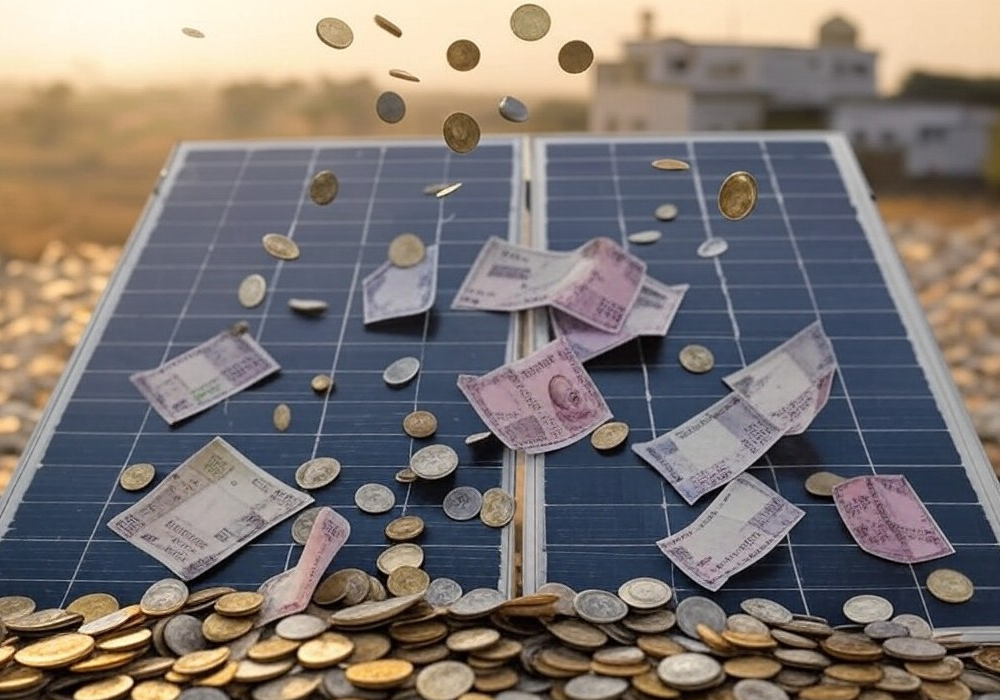As India moves towards renewable energy, solar power is becoming a preferred choice for homeowners and businesses alike. However, to maximize the benefits of solar energy, investing in the right solar battery is crucial. This guide will help you navigate the key factors to consider when purchasing a solar battery in India.
Why Do You Need a Solar Battery?
A solar battery stores excess energy generated by your solar panels, allowing you to use it during power cuts, at night, or during cloudy days. Given India’s frequent power outages and rising electricity costs, a solar battery ensures energy independence and uninterrupted power supply.
Types of Solar Batteries Available in India
Understanding the different types of solar batteries is essential before making a purchase:
- Lead-Acid Batteries:
- Most commonly used in India.
- Affordable and widely available.
- Requires regular maintenance and has a shorter lifespan (3-5 years).
- Lithium-ion Batteries:
- Higher efficiency and longer lifespan (8-15 years).
- Lightweight and maintenance-free.
- More expensive than lead-acid batteries but offers better performance.
- Saltwater Batteries:
- Eco-friendly and non-toxic.
- Newer technology with limited availability in India.
- Lower maintenance but relatively expensive.
Key Factors to Consider When Buying
1. Capacity and Power Rating
- Measured in kilowatt-hours (kWh), capacity determines how much energy a battery can store.
- Power rating (kW) indicates how much electricity the battery can deliver at a given time.
- Choose a battery based on your household’s energy consumption and backup requirements.
2. Depth of Discharge (DoD)
- Represents how much of the battery’s capacity can be used before needing a recharge.
- A higher DoD means better efficiency. For example, lithium-ion batteries often have a DoD of 80-90%, while lead-acid batteries typically have a DoD of 50%.
3. Battery Life and Warranty
- Check the warranty and lifespan of the battery. Most lithium-ion batteries come with warranties of 8-10 years, whereas lead-acid batteries offer 3-5 years.
- Look for cycle life (number of charge/discharge cycles) as a key indicator of longevity.
4. Efficiency and Performance
- Round-trip efficiency is the percentage of energy retrieved from the battery compared to what was stored. Higher efficiency means less energy loss.
- Lithium-ion batteries have an efficiency of 90-95%, while lead-acid batteries have around 70-80%.
5. Cost and Budget
- While lead-acid batteries are cheaper upfront, they require regular maintenance and replacements.
- Lithium-ion batteries are costlier initially but save money in the long run due to their higher efficiency and lifespan.
- Consider subsidies or incentives offered by the Indian government for solar battery installations.
Best Solar Battery Brands in India
Here are some of the top-rated solar battery brands available in India:
- Exide – Well-known for reliable and affordable lead-acid solar batteries.
- Luminous – Offers both lead-acid and lithium-ion options with good performance.
- Amaron – Popular for its durable and high-performance solar batteries.
- Okaya – Provides cost-effective and maintenance-friendly options.
- Tesla Powerwall – A premium lithium-ion battery with high efficiency and smart features (imported option).
Government Incentives and Subsidies
The Indian government promotes solar energy adoption through various schemes:
- Subsidies on Solar Panels and Batteries – Offered under the Ministry of New and Renewable Energy (MNRE).
- Net Metering Policies – Helps reduce electricity bills by feeding excess solar power back into the grid.
- State-Level Incentives – Some states provide additional financial benefits for solar battery installations.
Conclusion
Choosing the right solar battery in India depends on your budget, energy needs, and long-term savings. While lead-acid batteries remain the most affordable option, lithium-ion batteries offer better efficiency and longevity. Evaluate factors like capacity, warranty, and government incentives before making your decision. Investing in the right solar battery will ensure energy security, lower electricity costs, and contribute to a greener future for India.


